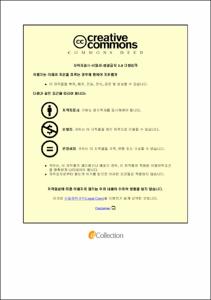학습부진 학생을 위한 자아존중감과 학습동기 향상 프로그램 효과연구
- Abstract
- The purpose of this study is to develop and apply a program to improve self-esteem and learning motivation, and to examine how it affects the improvement of the self-esteem and learning motivation for the underachieved elementary school students in the upper grades.
For this purpose, theories on the underachivment, self-esteem, and learning motivation were reviewed, and the following research questions were established based on this.
First, What is the effect of the self-esteem and learning motivation improvement program on the self-esteem of underachieved students?
Second, What is the effect of the self-esteem and learning motivation improvement program on the learning motivation of underachieved students?
Third, What is the satisfaction of students who participated in the self-esteem and learning motivation improvement program and the interest of parents?
The subjects of this study were 20 underachieved students in the 5th and 6th grades of N Elementary School located in G-gu, Busan.
As a measuring tool for self-esteem, the test paper of Jeon Seung-bae (2000) was used as a test paper translated by Choi Bo-ga and Jeon Gwi-yeon (1993) by referring to the studies of Coopersmith, McChale, and Chaighead, and was reconstructed to suit the level of elementary school children.
Based on the learning motivation scale of Vallerand et al. (1993) as a measuring tool for learning motivation, it was revised and supplemented by Hwang Chang-hoon (2007) as a question that considered the level of high-grade elementary school children by referring to the questions of Woo-yeop Shim (2001) and Insu Choi (2000). The reconstructed test tool was used.
The self-esteem measurement tool used a test paper of Jeon Seung-bae (2000), translated by Choi Bo-yi, Jeon Gwi-yeon (1993) and reconstructed to match the level of elementary school students, referring to Coopersmith, McChale and Chaighead studies.
As a measure of motivation for learning, we used an inspection tool modified and supplemented by Hwang Chang-hoon (2007) to match the level of senior elementary school students, referring to the questions of Shim Woo-yeop (2001) and Choi In-soo (2000) based on Vallerand et al (1993).
The effectiveness of the self-esteem and learning motivation improvement program was examined through pre- and post-test.
In order to verify the program effect, it was analyzed using the SPSS WIN 21.0 program. And a response sample t-test was conducted to verify the effect on the improvement of elementary school students' self-esteem and learning motivation. In addition, in order to supplement the limitations of the statistical analysis results and to find out the effect of a more specific program, participating students' and parents' satisfaction survey and review were described. The results were analyzed.
The summary of the results of this study is as follows.
First, when examining the effect of self-esteem and learning motivation improvement programs on self-esteem improvement of underachieved students, significant results were shown for the overall self-esteem. When looking at each sub-factor of self-esteem, there were significant results in general self-esteem, social self-esteem, and family self-esteem, but not in academic self-esteem.
Second, when examining the effect of self-esteem and learning motivation improvement programs on the improvement of learning motivation of underachieved students, significant results were shown for the overall learning motivation. When looking at each sub-factor, there were significant results in the intrinsic motivation and the autonomous external motivation, and no meaningful results were obtained in the intrinsic motivation and the non-motivation.
However, since the results were significant in terms of overall self-esteem and learning motivation, it can be said that the self-esteem and learning motivation improvement program for underachieved students is helpful in improving self-esteem and learning motivation.
Third, when examining the satisfaction of students who participated in the self-esteem and learning motivation improvement program and the interests of the participating students' parents, participating students were generally interested, actively participating, and their satisfaction was high, and it was found that self-esteem for thinking about themselves and motivation for learning were also improved.
In addition, the survey with the parents of participating students showed that they prefer positive interest in the program and programs that continue to progress.
From the results of this study, it can be seen that the program applied to improve self-esteem and learning motivation had an improvement effect on the self-esteem and learning motivation of underachieved students.
- Issued Date
- 2021
- Awarded Date
- 2021. 8
- Type
- Dissertation
- Publisher
- 부경대학교
- Affiliation
- 부경대학교 교육대학원
- Department
- 교육대학원 교육컨설팅학과
- Advisor
- 원효헌
- Table Of Contents
- I. 서론 1
1. 연구의 필요성 및 목적 1
2. 연구문제 5
3. 용어의 정리 6
II. 이론적 배경 8
1. 학습부진 8
2. 자아존중감 11
3. 학습동기 16
4. 학습부진 향상을 위한 프로그램 동향 및 관련 변인 간의 관계연구 18
Ⅲ. 연구 방법 29
1. 연구대상 29
2. 실험설계 29
3. 프로그램 30
4. 측정 도구 39
5. 연구절차 42
6. 자료 분석 44
IV. 연구결과 46
1. 학습부진 학생을 위한 자아존중감과 학습동기 향상 프로그램이 자아존중감에 미치는 효과 분석 46
2. 학습부진 학생을 위한 자아존중감과 학습동기 향상 프로그램이 학습동기에 미치는 효과 분석 48
3. 자아존중감과 학습동기 향상 프로그램에 참여한 학생들이 느끼는 만족도와 참여 학생 부모의 설문 분석 49
Ⅴ. 결론 및 제언 59
1. 결론 59
2. 제언 62
참고문헌 64
부록: 설문지 75
- Degree
- Master
- Files in This Item:
-
-
Download
 학습부진 학생을 위한 자아존중감과 학습동기 향상 프로그램 효과연구.pdf
기타 데이터 / 20.32 MB / Adobe PDF
학습부진 학생을 위한 자아존중감과 학습동기 향상 프로그램 효과연구.pdf
기타 데이터 / 20.32 MB / Adobe PDF
-
Items in Repository are protected by copyright, with all rights reserved, unless otherwise indicated.